Cargo Ship Reportedly Owned By Iran Security Chief Impounded In India
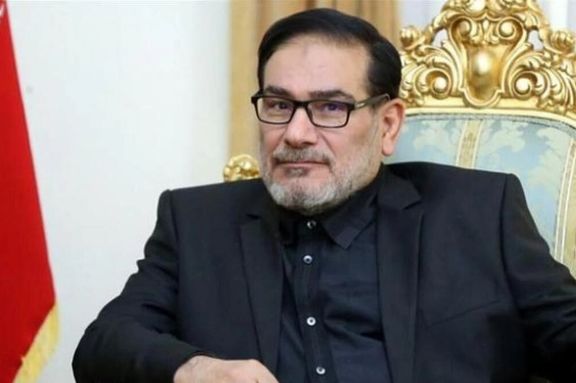
A cargo ship reportedly belonging to the sons of Iran's top security official Ali Shamkhani has been impounded in one of India’s ports.

A cargo ship reportedly belonging to the sons of Iran's top security official Ali Shamkhani has been impounded in one of India’s ports.
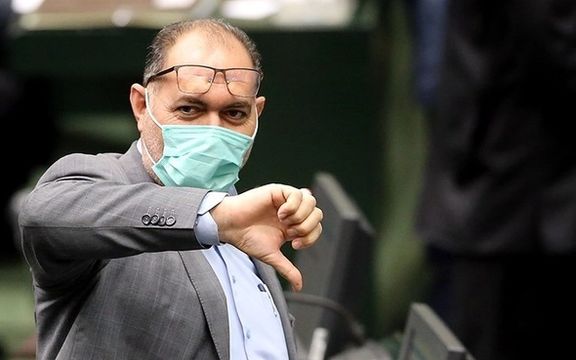
While Iran’s parliament is halfway through its four-year term, commentators say most of the lawmakers are unlikely to convince voters to re-elect them in 2024.
Some observers have expressed concern that the disappointing performance of Iran's 11th parliament (Majles) since the 1979 revolution might lead to another record voter low turnout in 2024. The parliament's performance already led to an extremely low turnout in the 2020 by-election.
Nearly under every social media post about the parliament, users point out that lawmakers have broken their promise of making the voting process in the parliament transparent. In early November, the parliament rejected a bill that called for open voting and a renewed push in February was supported by only 66 of the 290 lawmakers. However, the Majles might approve the bill towards the end of its term only to leave it as an annoying legacy for the next Majles.
While the current Majles started its work with criticism of the Rouhani administration's economic performance, it has not yet approved any bill meant to bring about improvement in Iran's ailing economy. Majles speaker Mohammad Bagher Ghalibaf said in a rare admission in October, “We could not accomplish anything,” and added, “We were not able to work correctly.”
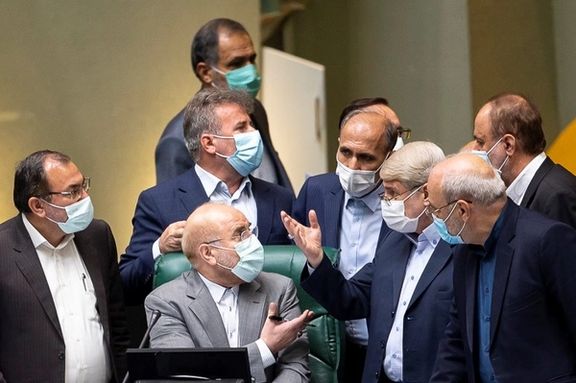
Meanwhile, in July 2021, Khabar Online, a leading news website in Tehran characterized the current Majles as a "minority parliament" that should avoid provocative legislation opposed by most Iranians. The website noted that the ultra-conservative parliament has already annoyed a major part of the population by considering a bill to limit citizens’ access to the Internet and opposing a long-awaited salary increase for the country's low-paid teachers who have been taking to the streets in recent months.
Khabar Online also said that 38 lawmakers at the Majles had won between 2 to 10 percent of the votes in their constituencies, when they got elected in February 2020. Two members won around 2 percent of the votes in their districts, while at least 3 lawmakers in this group chair various parliamentary committees despite their less than 10 percent voter base.
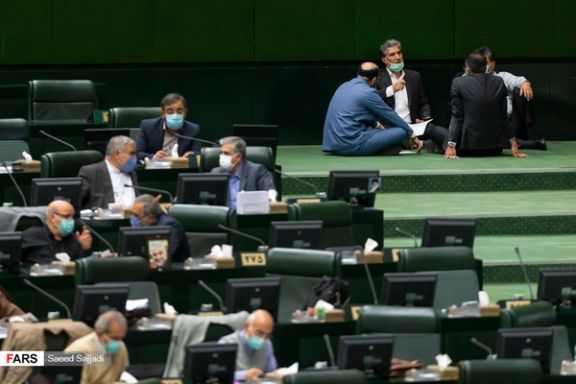
While at times the Majles joined other critics to lash out at the Raisi administration for nepotism and giving big jobs to small men with no merits, it turned out in November that some of the insiders who got the big jobs were the relatives of lawmakers.
The parliament has also been harshly criticized for not objecting to the appointment of IRGC generals as state officials or allowing them to run for President.
The Majles has also been criticized by the press for not being able to carry out its supervisory role. A group of lawmakers tabled motions during the past months to impeach several ministers including the ministers of labor, industry and health for breaking laws and shortcomings in their performance, but each time, the Majles Presidium refused to officially acknowledge the call for impeachment.
Based on what the Majles has done or failed to do during the past two years, some Iranian media outlets, including the moderate Rouydad24, have said that many of the current lawmakers might find it hard to convince Iranian voters to vote for them in 2024 when the turnout is likely to be even lower than in 2020.
The parliament’s record of coordination with the government has also been criticized. While most commentators in Iran believed that a hardliner Majles would work well with the ultraconservative government of Ebrahim Raisi, the first signs of a rift between the two emerged in late February as the parliament disagreed with key parts of the government's budget bill.
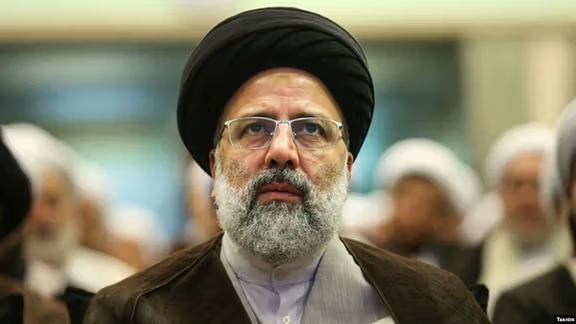
Nine human rights organizations have called on world powers negotiating with Iran in Vienna “not to lift human rights sanctions on the Islamic Republic of Iran.”
The group, including the Netherlands-based Center for Human Rights in Iran, issued a statement Friday told world power trying to revive the 2015 Iran nuclear deal they should be “maintaining” sanctions against Iran’s President Ebrahim Raisi.
Raisi was designated by the United States in 2019under an executive order signed by President Donald Trump allowing sanctions against anyone linked to the office of Iran Supreme Leader Ali Khamenei. The rights’ groups’ statement attributed Raisi’s listing to his role 31 years earlier in the 1988 prison executions, which the US Treasury cited in its press release announcing the designation.
Iran, backed by other participants, has argued that talks in Vienna should stick to the original logic of the 2015 deal, the JCPOA (Joint Comprehensive Plan of Action), in isolating the nuclear from other issues.
The rights groups statement said US “human rights sanctions” were imposed due to “the Iranian government’s egregious rights violations and abuses,” and that Raisi had “personally participated in ‘Death Commissions’” in 1988.
Hadi Ghaemi, executive director of the Center for Human Rights in Iran, said: “We cannot sacrifice human rights at the mantle of the nuclear negotiations with the Islamic Republic.”
as/ms
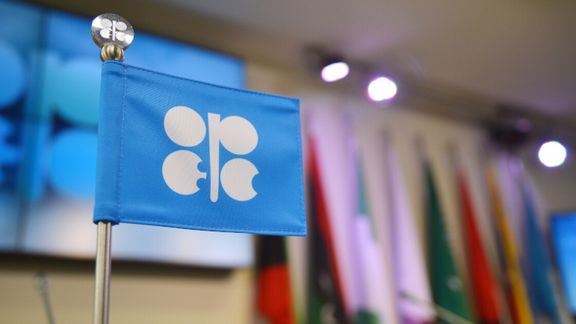
OPEC and its oil exporting allies will integrate Iran into their oil supply accord should a nuclear agreement be reached in Vienna and US sanctions lifted.
Quoting sources close to the group the report said OPEC+ seeks to avoid market share competition that could hit prices.
A successful outcome to the talks will lift United States’ sanctions on Iran's exports, according to the International Energy Agency, potentially bringing 1.3 million barrels per day (bpd) of Iranian oil back into the market. That could ease tight global supply and take some heat out of a rally that has taken benchmark prices to just a few dollars short of $100 a barrel.
Iran has been under full US oil sanctions since May 2019, and it was under partial sanctions from mid-2018. Its finances and the economy have suffered gravely as a result, and it is eager to sell as much crude as possible once sanctions are lifted.
The sanctions have also made Iran exempt from the existing export limit deal between the Organization of the Petroleum Exporting Countries and allies, known as OPEC+. While that exemption allows Iran to boost output, OPEC+ would eventually seek to bring Iran into the accord, sources said.
"It is very likely OPEC will adjust Iran into the deal, as there is no other option," an OPEC+ source told Reuters, who added that an agreement on reviving the nuclear accord looked close.
A source familiar with Iranian thinking said Iran would first seek to restore its lost output, but would likely, after talks with OPEC+, agree to a quota. Iran is one of the five founding members of OPEC.
Iranian officials are trying to restore they market share with previous customers like South Korea, Japan and India. Contacts and talks have already begun to coordinate post-sanction shipments.
Iran is pumping about 2.5 million bpd, some 1.3 million bpd less than in 2018 when former US President Donald Trump withdrew the United States from the nuclear accord and re-imposed sanctions, drastically cutting Tehran's oil income.
"With the lifting of sanctions, Iran will increase its oil production according to its facilities, capabilities and interests, to compensate for its lost oil revenues," the source familiar with Iranian thinking said.
"In my opinion, OPEC+ will set a quota for Iran's oil production but will apply it gradually, and Iran will accept the quota with some bargaining to show its support for OPEC."
'OPTIMISTIC' ON IRAN ISSUE
OPEC Secretary General Mohammad Barkindo, asked if OPEC+ would work out a new supply agreement that included Iran, said the group's track record gave grounds for confidence.
"Having survived the last five years since the establishment of the historic partnership between OPEC and non-OPEC that helped us to navigate through two oil cycles, we have every reason to remain reasonably optimistic going forward," he told Reuters.
OPEC+ is gradually boosting oil output after making record cuts in 2020 when demand collapsed due to the pandemic. But it has failed to hit its target because some producers did not make the investment or do the maintenance needed on oilfields during the pandemic to keep those facilities ready to increase output quickly.
For the United States, it would make sense to lift the sanctions on Iran to help lower prices given the domestic pressure the administration of President Joe Biden is facing due to rising inflation. The United States may also be considering that any output from Iran would ease the impact on global oil markets of any conflict between Russia and the Ukraine, a source familiar with Russian oil thinking said.
"The US will surely lift the sanction from Iran as soon as they decide to put more pressure on Russia given the current tensions over Ukraine," the source said. "Iranian oil will cool oil prices."
Reporting by Reuters
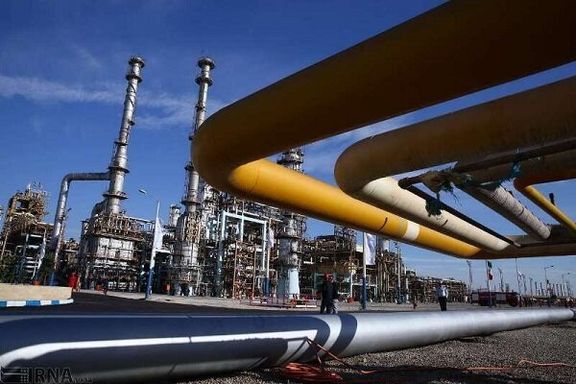
An oil refiner from India has started negotiations with the Islamic Republic to resume crude imports as soon as the nuclear deal is finalized.
Reuters cited an Indian refining source on Thursday that the Indian company is in talks with Iran for sourcing its oil, but the sources declined to be identified due to sensitivity of the matter.
India, which used to be Iran's No. 2 customer, halted oil imports in 2019 after former US President Donald Trump withdrew from the nuclear deal and re-imposed sanctions on Tehran's oil exports.
According to the unnamed source, New Delhi is waiting for more clarity on the nuclear deal, which apparently is close to tangible results.
A new deal can potentially pave the way for more oil supplies on global markets and soften prices about $5-10 a barrel, because Iran can contribute five percent to the world’s crude volume.
Earlier on Thursday, Japanese oil and energy corporation ENEOS announced its readiness to resume oil imports within two to three months of any revival of the 2015 Iran nuclear deal.
Tsutomu Sugimori, chairman of Japan’s largest refiner, said Thursday that ENEOS would not be able to resume Iranian imports immediately as it needed to set up insurance and arrange shipping. He called a two to three-month period a “possibility.”
Also, in preparation for the possible easing of US sanctions, Iran and South Korea, another major Iranian oil customer before 2018-19, opened detailed talks on freeing Tehran's money frozen by Korean banks fearful of punitive US measures.
as/ms
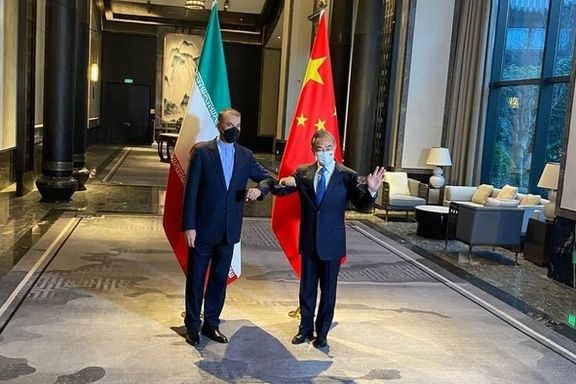
Rumors have resurfaced that China will deploy 5,000 security forces to Iran to protect its investments, raising public concern over secrecy in dealings with Beijing.
Earlier this week, the issue of public concern over secrecy in the implementation of the 25-year strategic cooperation agreement signed in March 2021 was raised at a meeting of private sector business leaders at a meeting of Tehran Chamber of Commerce.
Iran hopes the agreement -- the contents of which have been kept secret at China's request according to Iranian officials -- will bring Chinese investments and ensure more diplomatic support from Beijing. Iranian Foreign Minister Hossein Amir-Abdollahian and Chinese Foreign Minister Wang Yi announced the launch of the deal in city of Wuxi in the eastern province of Jiangsu on January 14. Amir-Abdollahian has described the agreement as a "win-win" for both countries.
"Certain rumors cause concerns over the implementation of this deal. For instance, it's rumored that Chinese companies will not have to bid to get oil and gas projects, or that 5,000 Chinese security forces are going to come to Iran for the protection of Chinese staff, or that they will be granted the right to delay payments for two years," Reza Padidar, Chairman of the Energy and Environment Committee of Tehran Chamber of Commerce said at the meeting.
Padidar stressed that Iran needs investments but added that it is important to know how any Chinese presence in energy and infrastructures sectors will play out in Iran's development in the future. "Unfortunately, these are issues that are not seen [being discussed] in Iranian officials' negotiations with the Chinese side."
Ferial Mostofi, Chairwoman of the Money and Investment Committee of Tehran Chamber of Commerce, also said at the meeting that while cooperation deals with other countries is desirable, keeping the details of the cooperation deal with China secret causes concern. According to Mostofi, the Chamber has requested various authorities to provide information about the deal but has so far not received any response from them.
China's alleged intention to send 5,000 security forces to Iran as part of the Sino-Iranian strategic partnership was first mentioned by Petroleum Economist in September 2019. The British journal quoted an unnamed senior source closely connected to Iran's petroleum ministry as saying that China also wanted to send additional personnel to protect the eventual transit of oil, gas and petrochemicals from Iran to China, including through the Persian Gulf.
The rumored agreement to accept the presence of thousands of Chinese security forces in Iran, as well as other rumors such as a plan to lease the Persian Gulf Island of Kish to China in return for an investment of $400 billion in Iran over the course of 25 years have been going around in Iranian media and social media since 2019.
Referring to these rumors, Eghtesad Online economic website in an article entitled "What Is the Truth About Presence of 5,000 Chinese Security Forces in Iran" on Thursday recounted the concerns by the officials of Tehran Chamber of Commerce and said withholding information pertaining to the economic part of the deal which covers a wide range of areas of cooperation is stoking concerns.
The container vessel, named Kabul, belongs to the Admiral Shipping Company that Iranian media said is owned by Hassan and Hossein Shamkhani, the sons of the secretary of Iran’s Supreme National Security Council.
ILNA news agency reported on Friday that an Indian court has ordered the seizure of the ship and cargos originating or destined to Iran about 10 days ago.
The container ship is impounded on charges of possessing false documents, and has been anchored at Kandla, officially Deendayal Port -- a seaport and town in Kutch district of Gujarat state in Western India -- for 10 days ago.
According to Marine Traffic, KABUL is a container ship that was built in 2001 and is sailing under the flag of Saint Kitts and Nevis.
In recent years, the economic activities of Shamkhani’s family, including his brother and son-in-law, have been widely criticized and made headlines in Iran. Shamkhani was an admiral in Iran’s navy and a former IRGC commander.
He has recently been an outspoken critic of the Vienna talks to revive the Iran nuclear deal. After news about the impounded ship broke, critics quipped that continuation of United States’ sanctions are apparently good for Shamkhani family’s business interests.
This week, the publication of an audio recording implicated top commanders of the Revolutionary Guards in a massive corruption scheme in mid-2010s.